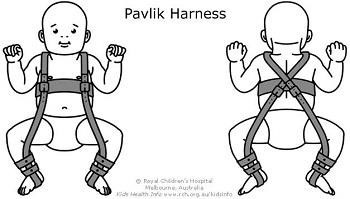A student nurse asks the faculty why peer relationships become more important during adolescence. Which of the following is the nurse's best response?
They provide adolescents with a feeling of belonging
Adolescents dislike their parents.
Adolescents no longer need parental control.
They promote a sense of individuality in adolescents,
The Correct Answer is A
The nurse's best response to the student nurse regarding why peer relationships become more important during adolescence is option A. Peer relationships become significant during adolescence because they provide adolescents with a sense of belonging. During this developmental stage, adolescents are transitioning from a primary focus on their family to a greater emphasis on peer interactions and social connections. Peer relationships offer a sense of acceptance, support, and identity as adolescents strive to establish their own identities separate from their families.
adolescents dislike their parents in (option B), is not a correct or comprehensive explanation for the increased importance of peer relationships during adolescence. While it is common for parent-child conflicts to arise during this stage, it does not imply that adolescents dislike their parents as a general rule.
suggesting that adolescents no longer need parental control in (option C), is not correct. While adolescents are seeking increased independence and autonomy, they still require parental guidance and support. Parental control and involvement continue to be essential in providing a secure and nurturing environment during adolescence.
They promote a sense of individuality in adolescents in (option D), is incorrect. Peer relationships do contribute to the development of individuality by allowing adolescents to explore their own interests, values, and social roles. However, the primary reason for the increased importance of peer relationships during adolescence is the sense of belonging and social acceptance they provide.
Nursing Test Bank
Naxlex Comprehensive Predictor Exams
Related Questions
Correct Answer is A
Explanation
A. The harness maintains the hips in flexion, abduction, and external rotation
The factor that the nurse should include when teaching a parent about the care of a newborn
in a Pavlik harness for hip dysplasia is that the harness maintains the hips in flexion,
abduction, and external rotation. The Pavlik harness is a commonly used device for the
treatment of developmental dysplasia of the hip (DDH) in infants. It is designed to hold the
hips in a position that promotes proper alignment and development.
The harness maintains the hips in flexion, abduction and external rotation in (Option B) is
incorrect. The Pavlik harness should not be removed with every diaper change. The harness
needs to be worn consistently as directed by the healthcare provider to ensure the
effectiveness of the treatment.
The harness is the only first step of treatment in (Option C) is incorrect. While the Pavlik
harness is an important step in the treatment of hip dysplasia, it is not the only step.
Additional treatments, such as bracing or surgical interventions, may be required depending
on the severity of the condition.
The harness in worn for 2 weeks in (Option D) is incorrect. The duration for which the Pavlik
harness is worn can vary depending on the individual case and the healthcare provider's
instructions. It is typically worn for several weeks to months, and the specific duration will be
determined by the healthcare provider based on the child's progress and response to
treatment.

Correct Answer is A
Explanation
Graves' disease is an autoimmune disorder that affects the thyroid gland and results in the overproduction of thyroid hormones. Treatment for Graves' disease typically involves medications to regulate thyroid function. Adherence to the medication regimen is crucial for managing the disease and controlling symptoms.
By prioritizing the goal of verbalizing the importance of adherence to the medication regimen, the nurse aims to educate the adolescent about the significance of taking medications as prescribed. This education can help the adolescent understand the impact of medication non-adherence on their health and encourage them to actively participate in their treatment.
, developing alternative educational goals in (option B) is incorrect because it, is not directly related to the management of Graves' disease and its treatment.
allowing the adolescent to make decisions about whether or not to take medication in (option C) is incorrect because it, is not appropriate for a condition like Graves' disease where medication adherence is necessary for disease management. In this case, the nurse should focus on providing education and support to help the adolescent understand the importance of medication compliance.
relieving constipation in (option D) is incorrect because it, may be a consideration if constipation is a symptom experienced by the adolescent with Graves' disease. However, it is not the priority nursing goal as compared to ensuring adherence to the medication regimen, which directly addresses the management of Graves' disease.
Whether you are a student looking to ace your exams or a practicing nurse seeking to enhance your expertise , our nursing education contents will empower you with the confidence and competence to make a difference in the lives of patients and become a respected leader in the healthcare field.
Visit Naxlex, invest in your future and unlock endless possibilities with our unparalleled nursing education contents today
Report Wrong Answer on the Current Question
Do you disagree with the answer? If yes, what is your expected answer? Explain.
Kindly be descriptive with the issue you are facing.
